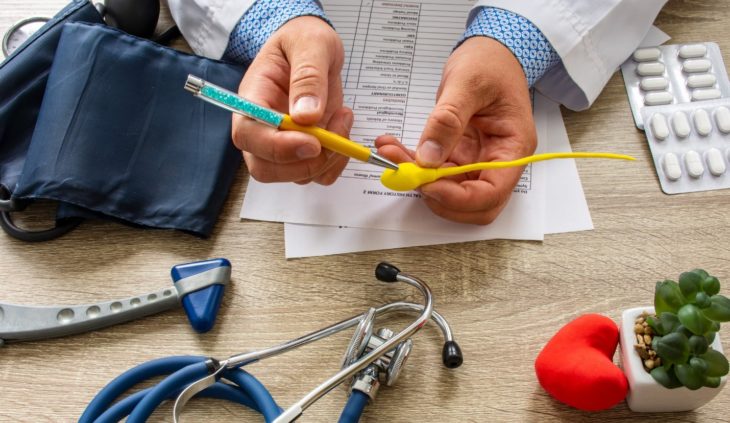
When a couple is trying to conceive (6 months or longer of intercourse without birth control + female age over 35) but not having any success it’s time to get tested. Both partners must be tested as infertility can be a combination of male and female factors. For women, depending in the symptoms, there are a series of tests, usually beginning with a pelvic ultrasound. For men the testing begins with a semen analysis.
A semen analysis is a non-invasive test performed as part of an overall fertility assessment. One out of every eight couples will have trouble conceiving and nearly half of the time the cause is related to semen quality, low sperm, sperm function or a physical impairment such as a varicocele or a hormone imbalance causing testicular dysfunction.
If your physician recommends a semen analysis, it’s likely you have some questions and concerns. We’ve put together a Q&A of some of the most common questions men (and women) have concerning sperm testing.
Why is a semen analysis necessary?
For those couples with “normal” fertility it takes around six months or longer to conceive. Each month offers only a one in five opportunity for conception to occur. For those couples who’ve been trying to conceive naturally for six months (women over 35) or one year (women under 35) without results it is necessary to speak with your doctor.
The initial consultation is typically with the woman’s gynecologist. They will ask your partner some questions related to her menstrual cycle and recommend you both begin fertility testing, which includes semen analysis.
What is my part in the semen analysis procedure?
Semen analysis can, initially, be a bit awkward for most men. However, it’s relatively easy process compared to the much more invasive tests undertaken by women.
Your journey will begin with a referral from your partner’s gynecologist, preferably to a fertility lab. The reason this type of lab is preferred is due to the intricate and specialized nature of sperm testing.
You will be asked to abstain from ejaculating for 48-72 hours prior to providing your sample. You will be given a collection kit and shown to a private room where you will provide your sample. In order to guarantee accuracy the entire ejaculate must be collected in the cup.
The sample must be tested within 2-3 hours of collection. If your sample is determined to be normal on the first try then you won’t be required to do anything else. However, if abnormalities are detected, you will need to provide another sample. It’s recommended you wait a few weeks between samples.
After I provide my sample then what?
After you provide your sperm sample your analysis will check for four important factors.
First is volume. Your measurable amount (in cc’s) of ejaculate must be 1.5 cc or greater.
Next is the sperm count. In order to do that the technician looks at the total amount of ejaculate and measure it in milliliters (mL). The amount of sperm per mL is measured. Sperm count is considered normal at 15 million per mL or greater.
The third factor in semen analysis is your sperm’s motility, or ability to move forward. After all they need to reach the target (the egg) in order for conception. At least 40% of your sperm should be moving forward.
Finally, the lab will examine the appearance of your sperm to assess the morphology or shape, of your sperm. If your volume, count and motility are all normal then you need a mere 4% of your sperm to have perfect morphology as in an oval head and long tail.
As you can see the lab has a very tedious and precise job. That’s why it’s imperative to have a skills semen analysis technician performing the task.
What happens if my semen analysis is abnormal?
If your analysis shows a slight abnormality, and providing there are no other issues such as age or infertility factors with your partner, you may still be able to conceive naturally. You’ll need to be patient as it will take longer to conceive.
Your physician will offer some tips on how to improve your sperm quality and viability through certain lifestyle changes. You should eat a healthy diet, wear boxers instead of briefs, loose fitting pants and shorts are a must, and cut back on drinking alcohol and smoking. There are even some supplements you can take that will have a positive effect on your sperm quality.
If your semen analysis shows significant abnormalities with your sperm, you will be referred to a urologist specializing in male fertility who will do some more testing.
You Have Options
If you’re concerned about your fertility, you need to act now. Talk to your physician and get tested. Today’s advanced reproductive technology offers so many options to overcome many common and even complicated fertility issues. Never lose hope for realizing your dream of having a child.










